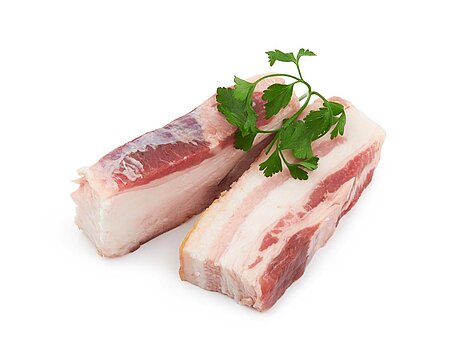Turkey fat

What is turkey fat?
Turkey fat is an animal fat made from fresh turkey offal using a wet rendering process. It has a high content of unsaturated fatty acids, especially omega-6 fatty acids, which are important for the health of dogs' skin and coat. Turkey fat is also rich in vitamin E, an antioxidant that protects cells from free radicals.
What are the benefits of turkey fat for dogs?
Turkey fat has several benefits for dogs that make it a popular ingredient in dog food. Firstly, it is a good source of energy for dogs that need a lot of exercise or are cold-blooded. Secondly, it is tasty and makes the food more appealing to dogs. Turkey fat can also help to aid dogs' digestion by facilitating the absorption of nutrients.
Turkey fat is also low in fat, making it a good choice for dogs suffering from obesity or on a diet. In addition, turkey fat also contains taurine, an essential amino acid that is important for dogs' heart health. It also helps to support vision and the immune system.
What are the disadvantages of turkey fat for dogs?
Turkey fat also has some disadvantages for dogs that you should be aware of. For one thing, it can cause allergic reactions or intolerances in some dogs, which can manifest as skin rashes, itching or diarrhea. On the other hand, excessive consumption can lead to an oversupply of omega-6 fatty acids, which can promote inflammation in the body. It is therefore important to ensure the correct ratio of omega-6 to omega-3 fatty acids in the food.
You should also make sure that you do not feed your dog any raw or cooked turkey meat with skin or bones. The skin is very fatty and can lead to stomach upset or pancreatitis. The bones can splinter and injure your dog's mouth, esophagus or intestines.
How can you feed your dog turkey fat?
If you want to feed your dog turkey fat, you should bear a few points in mind. Firstly, you should always pay attention to the quality of the product and only buy high-quality turkey fat that is free from harmful substances and pathogens. Secondly, you should always pay attention to the quantity of the product and only feed as much as your dog needs. The recommended daily ration of fat for a healthy dog is around 10 to 15 percent of total calories.
You can give your dog turkey fat either as part of a dry or wet food or as a supplement to their normal food. If you choose a ready-made food, you should always look at the ingredients list and choose a food that has turkey fat as a main ingredient. If you choose a supplement, you should always make sure that you reduce the total amount of fat in the food to avoid overfeeding.
Turkey fat is a common ingredient in dog food that has several benefits for dogs. It is a good source of energy, tasty, digestive and heart-healthy. However, it also has some disadvantages, such as allergic reactions, inflammation or injuries. Therefore, you should always pay attention to the quality, quantity and composition of the product and only feed your dog as much turkey fat as he needs.
If you notice any signs of hypersensitivity or poisoning in your dog, you should see your vet immediately. We are not a substitute for a vet, but we try to be as accurate as possible. Every dog reacts differently and we recommend you get a second opinion or consult your vet if in doubt.
Stay healthy and take good care of your four-legged friend!😊